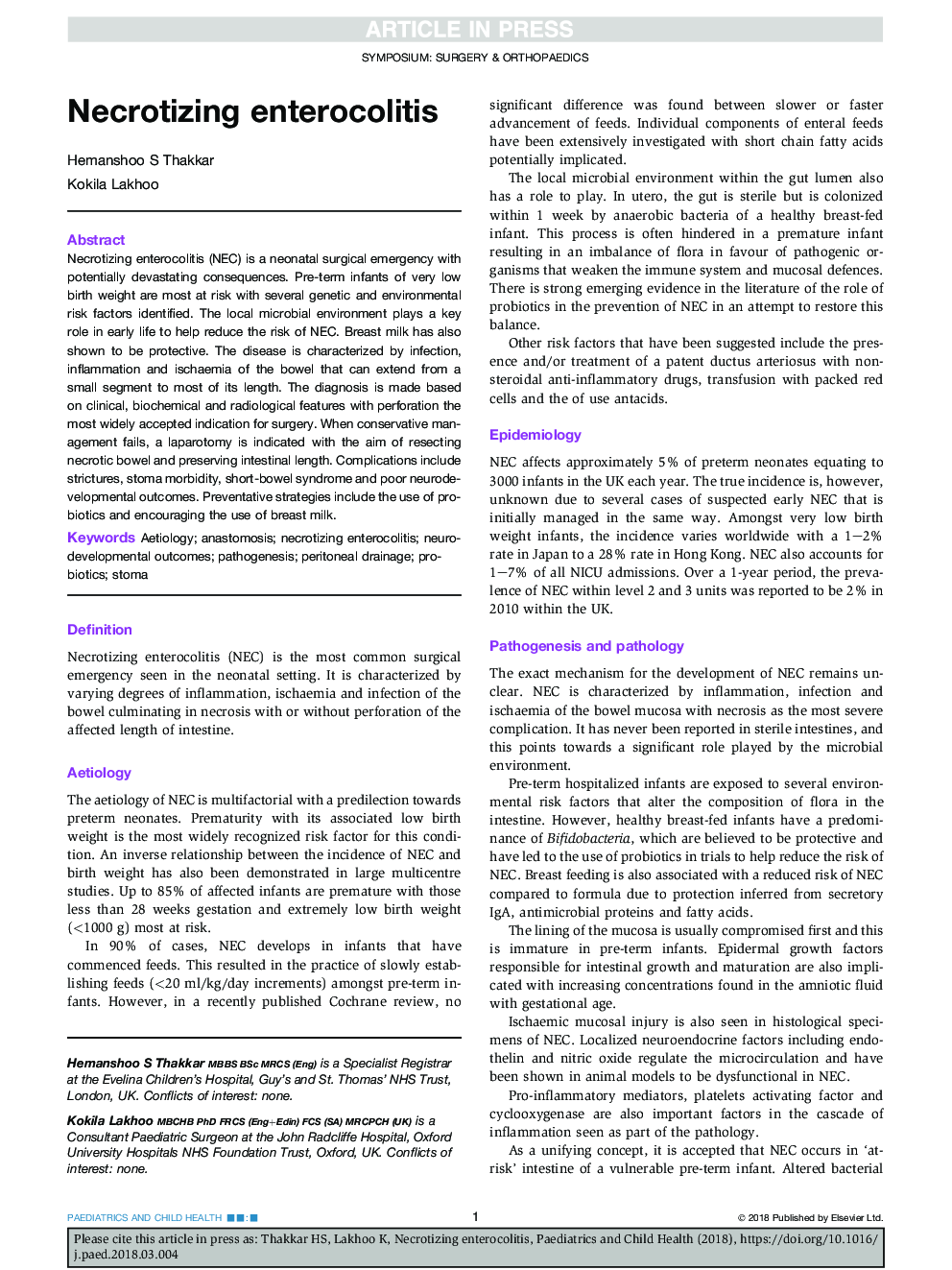| Article ID | Journal | Published Year | Pages | File Type |
|---|---|---|---|---|
| 8813096 | Paediatrics and Child Health | 2018 | 4 Pages |
Abstract
Necrotizing enterocolitis (NEC) is a neonatal surgical emergency with potentially devastating consequences. Pre-term infants of very low birth weight are most at risk with several genetic and environmental risk factors identified. The local microbial environment plays a key role in early life to help reduce the risk of NEC. Breast milk has also shown to be protective. The disease is characterized by infection, inflammation and ischaemia of the bowel that can extend from a small segment to most of its length. The diagnosis is made based on clinical, biochemical and radiological features with perforation the most widely accepted indication for surgery. When conservative management fails, a laparotomy is indicated with the aim of resecting necrotic bowel and preserving intestinal length. Complications include strictures, stoma morbidity, short-bowel syndrome and poor neurodevelopmental outcomes. Preventative strategies include the use of probiotics and encouraging the use of breast milk.
Keywords
Related Topics
Health Sciences
Medicine and Dentistry
Perinatology, Pediatrics and Child Health
Authors
Hemanshoo S. Thakkar, Kokila Lakhoo,
